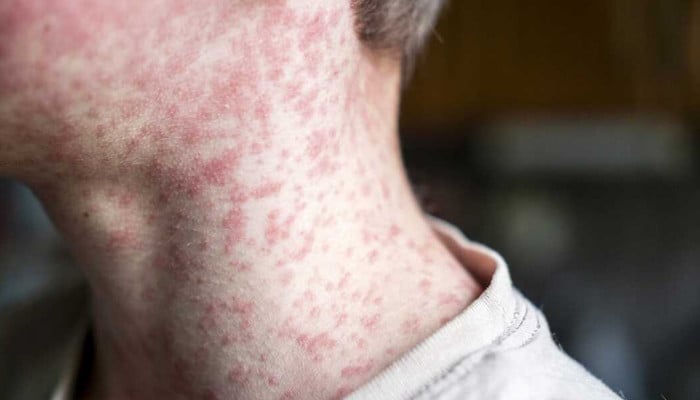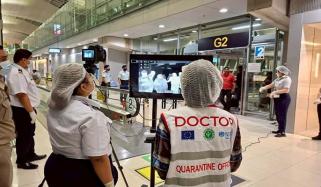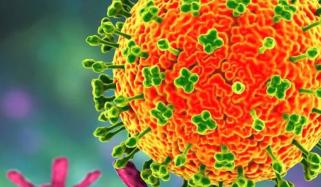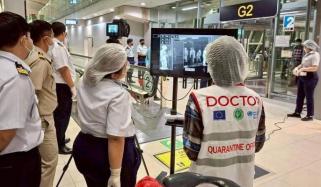
Measles, one of the most contagious infectious diseases in the world, has affected dozens of people in West Texas.
According to CNN, measles can cause serious consequences such as blindness, pneumonia or encephalitis, swelling of the brain, and even death, especially among children younger than 5.
Dr. Melissa Stockwell said, “About 1 in 5 unvaccinated people in the US with measles will be hospitalised, and as many as 1 in 20 children with measles will get pneumonia, which is the most common cause of death from measles in young children.”
She also warned that up to three out of every 1,000 children who got infected by measles die due to respiratory and neurologic complications.
Here is all you need to know about the infection that causes a total-body rash.
Symptoms
Early measles could cause symptoms similar to other respiratory infections like flu and common cold.
Dr. Glenn Fennelly, a paediatric infectious diseases specialist, explained that it is very difficult to differentiate measles from other common respiratory illnesses. However, if someone has a cough, conjunctivitis, or red eyes, and coryza, which is a term for a very congested or stuffy nose together, that is the time “to be concerned.”
Other symptoms of the measles include a high fever, rash, or Koplik spots that appear as tiny white spots inside the mouth.
Spread
Measles spreads through coughing, sneezing, and breathing the same air a person infected with measles breathed. Estimatedly, one infected person can infect nine to ten other unvaccinated close contacts.
Vaccination
The measles, mumps, and rubella (MMR) vaccine is found to be safe and effective for the infection. One dose of the vaccine is 93% effective against measles, while two doses gave 97% protection.
As per official guidance children should get forst dose of the vaccine between 12 and 15 months old while the second dose is recomended around 4 years old, before starting school.
Treatment
Unfortunately, there is no treatment for the “strongly immunosuppressive” virus. However, the other complications caused by measles can be treated.
Stockwell wrote in the email to CNN, “Sometimes measles can result in a secondary infection such as an ear infection or pneumonia that needs antibiotic treatment. Finally, vitamin A can be an important adjunctive therapy for measles that can help protect against severe disease and some of the adverse effects of measles.”
Moreover, people who are instructed to stay home can be treated with fever-reducing medications, rest, and lots of hydration.















